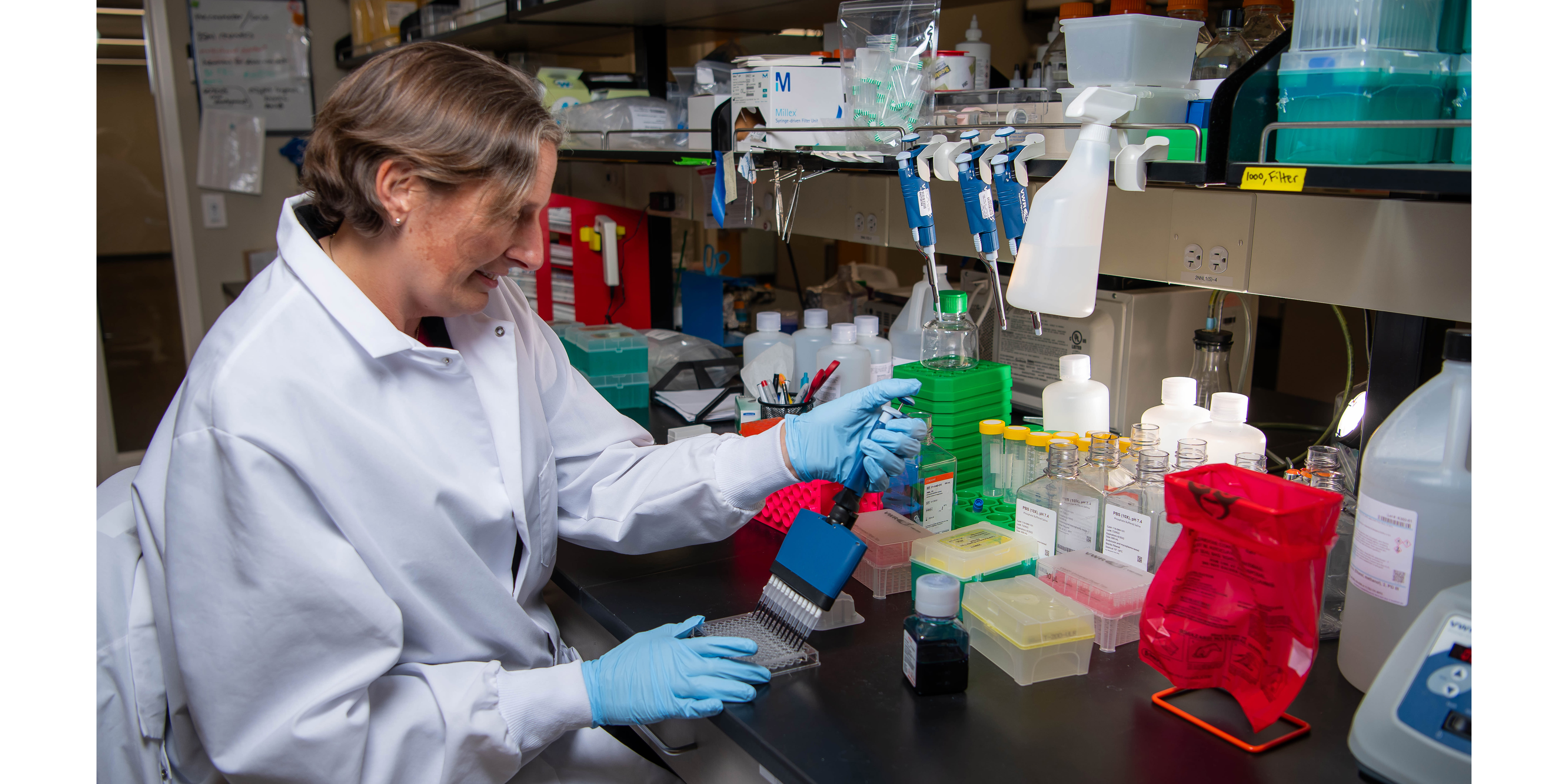
Author: Sasha Stanton, M.D., Ph.D., medical oncologist, Breast Cancer Program, Providence Cancer Institute, and assistant member, Cancer Immunoprevention Laboratory, Earle A. Chiles Research Institute, a division of Providence Cancer Institute
· Vaccines harness the power of the immune system to fight infections and could potentially prevent some cancers.
· Dr. Stanton’s research focuses on developing a preventive vaccine that targets ductal carcinoma in situ (DCIS) to prevent progression to invasive breast cancer and head and neck cancer.
· Within a few years, preclinical trials will move to early phase clinical trials where the vaccine’s safety and effectiveness in eliciting immune responses will be evaluated.
The immune system is a remarkable and complex system that detects and neutralizes pathogens and abnormal cells to protect us from disease. Vaccines work by harnessing this natural defense, training the immune system to recognize and fight infections or developing tumors. Since the eighteenth century, vaccines have been one of the most significant advancements in human health, preventing diseases like smallpox, polio, measles and most recently, COVID, by activating the immune system against viruses.
Currently, there are two vaccines approved by the Federal Drug Administration that prevent infections that can lead to cancer – the HPV and hepatitis B vaccines. But there are not any non-viral vaccines to prevent cancer. As a medical oncologist, I witnessed firsthand the limitations of current treatments and how the toxicities from these treatments impact patients’ lives. I believe the best approach is to prevent people from getting cancer in the first place and avoid the morbidity and mortality of cancer therapy.
The complexity of cancer and the way it evades the immune system make creating an immunoprevention cancer vaccine an incredibly difficult task. But I believe it’s possible. There is current, exciting research in prevention vaccines. My research at Earle A. Chiles Research Institute, a division of Providence Cancer Institute, is focused on developing vaccines that would intercept premalignant lesions to prevent invasive disease in breast and head and neck cancers.
The vaccine that is furthest along in development targets the pre-malignant tumors ductal carcinoma in situ (DCIS), as well as invasive breast cancer across multiple breast cancer subtypes. The vaccine is designed to both treat DCIS and prevent development of subsequent breast cancers.
In pursuit of a universal vaccine for DCIS
Initially, I identified 12 antigens that are overexpressed in breast cancer and DCIS and recognized by the immune system in women with both conditions. These antigens play an important role across all breast cancer subtypes: hormone receptor (HR) positive, HER2 negative, HER2 positive and triple negative. Because any breast cancer subtype can develop from DCIS, understanding these antigens could have a broad impact on managing potential invasive disease. Since then, we’ve identified specific parts of these antigens that are universally recognized, activating immune responses in people with different HLA (human leukocyte antigen) types.
HLA varies by ethnicity meaning many vaccines currently in clinical trials are only effective for individuals with a certain HLA type. Most commonly this is the HLA-A2 type. While HLA-A2 is found in 40-50% of white populations, it is less common in other ethnic groups, including African Americans. Considering that African American women experience higher rates of breast cancer and worse outcomes with DCIS, my goal is to develop a universal vaccine that can help everyone.
Expanding vaccine research
I have expanded my research to include identifying antigens for a lobular breast cancer prevention vaccine, the second-most common breast cancer pathology and currently understudied. The targets for this vaccine are overexpressed tumor-associated antigens rather than cancer-related mutations. In invasive disease, such as melanoma, that have a lot of mutations, neoantigen vaccines (vaccines that are targeted to tumor-specific mutations) have been effective.
However, breast cancer typically doesn’t have as many mutations as melanoma and other cancers. Furthermore, the mutations found in DCIS are different from those in invasive breast cancer, meaning they do not carry over to invasive disease. As a result, developing a neoantigen vaccine targeting DCIS mutations probably would not protect against a breast cancer that develops later.
Growing field of immunoprevention takes time and more research
Over the next few years, we will work in preclinical studies with the goal of moving to an early clinical trial in women with DCIS. The trial will focus on the safety and efficacy of the vaccine by looking at biopsy and surgery specimens of trial participants. Success in eliciting a robust immune response and minimizing adverse effects will determine when and how we will develop a randomized study.
Although this is a long-term process — possibly taking over 10 years to track recurrences – I hope to evaluate the vaccine in high-risk populations, starting with patients with DCIS. As long as the vaccine is safe and effective, I will extend the studies to patients with genetic mutations that predispose them to cancer or those with strong family histories of breast cancer.
In March 2024, the Journal for ImmunoTherapy in Cancer published an article I co-authored on the emerging field of immunoprevention and immune interception. In the article, we note that even with the funding challenges and a shortage in scientists pursuing the field at the moment, this research offers exciting opportunities to meet the unmet need in cancer prevention. I’m thrilled to have a team, lab and the support of my colleagues at Providence Cancer Institute to help lead this effort.
Leading cancer research
Since 1993, cancer research has been the primary focus of the Earle A. Chiles Research Institute, a division of Providence Cancer Institute of Oregon. Our team of physicians and scientists work together to improve cancer treatment methods – weaving together lab research like the work being done by Dr. Stanton and her team, clinical trials, and medical practice.
Learn more about the latest research and see the latest clinical trials open to breast cancer patients.
Find out more about the Breast Cancer Program at Providence Cancer Institute.
About the Author
More Content by Providence inScope Content Team


















